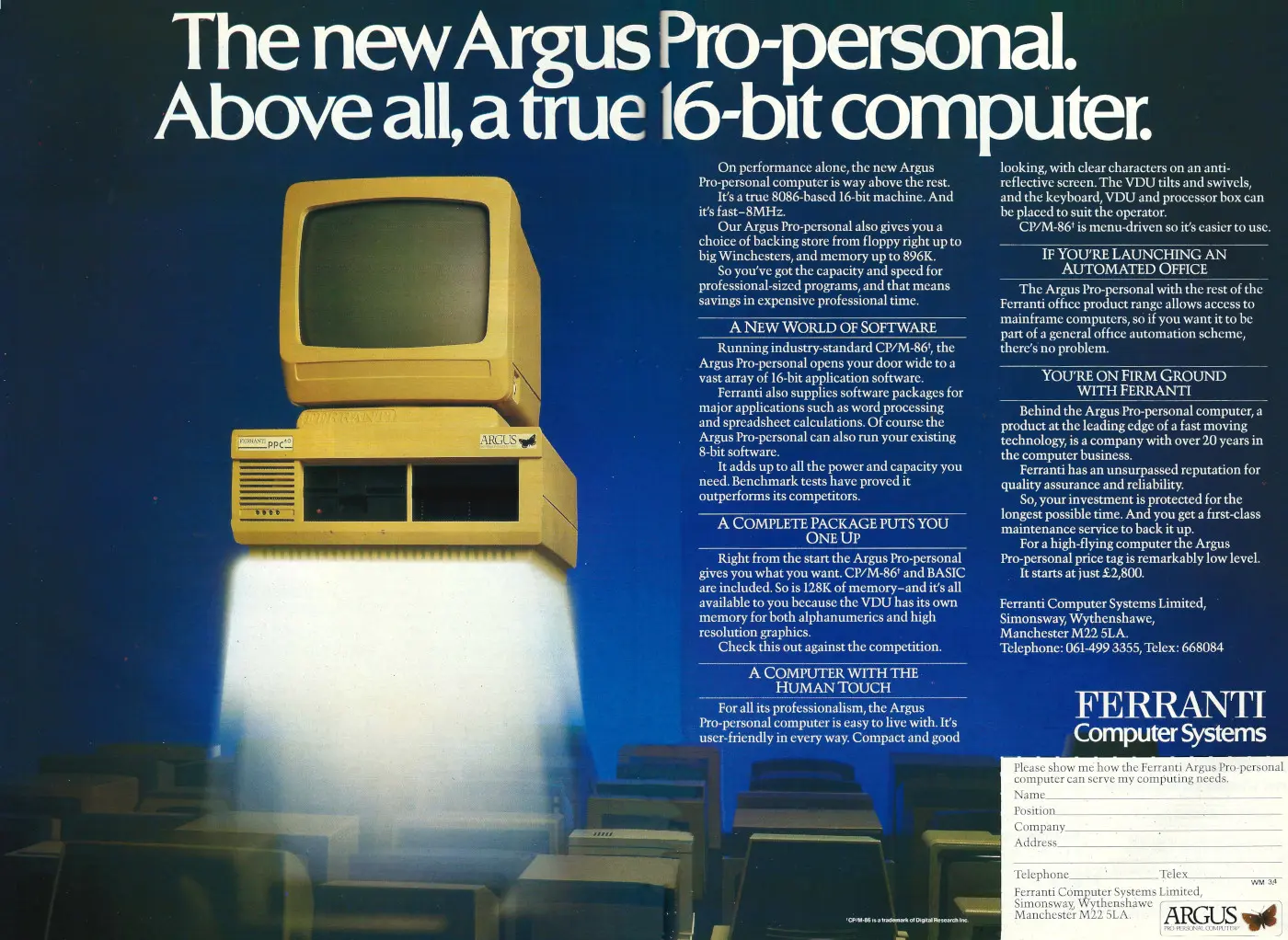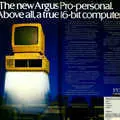
Ferranti Advert - March 1984
From Personal Computer World

The new Argus Pro-personal. Above all, a true 16-bit computer
Ferranti was a major UK-based electrical engineering firm which had been established in 1885.
It had built its first computer in 1951, but was perhaps more well-known in the microcomputer industry as the company which produced Uncommitted Logic Array chips (ULAs) for Acorn and Sinclair.
A ULA was essentially a "programmable" chip that could be hard-wired to do particular things, like graphics or I/O. Sinclair famously designed a ULA for almost the entire logic of its ZX81, meaning that the entire computer only required four chips, and so it was very cheap to make.
Acorn did the same thing with its Electron, cramming most of the logic of the original BBC Micro into a single ULA. There were also Ferranti ULAs in the original BBC Micro, however issues with the production run of these custom chips caused delays and were a significant factor in the lateness of the BBC's release.
Here, Ferranti is dipping its toe into the world of the desktop microcomputer, advertising its PPC10 as a true 16-bit system, as it was built around Intel's 8086.
However, rather than going for the IBM-compatible market, its machine ran CP/M-86 - a version of the popular but ageing operating system from the 1970s.
There also appears to be an attempt to coin a new phrase for boxy, yellow computers, as "pro-personal". Needless to say, it didn't catch on.
Ferranti also partnered with Advance, shipping the Advance 86a and 86b machines, which were actually IBM compatible, a few months later than its own machine featured here in "funky" mustard yellow.
The PPC10 retailed from £2,800 - about £11,800 in 2026.
Date created: 10 October 2014
Last updated: 11 December 2024
Hint: use left and right cursor keys to navigate between adverts.
Text and otherwise-uncredited photos © nosher.net 2026. Dollar/GBP conversions, where used, assume $1.50 to £1. "Now" prices are calculated dynamically using average RPI per year.

